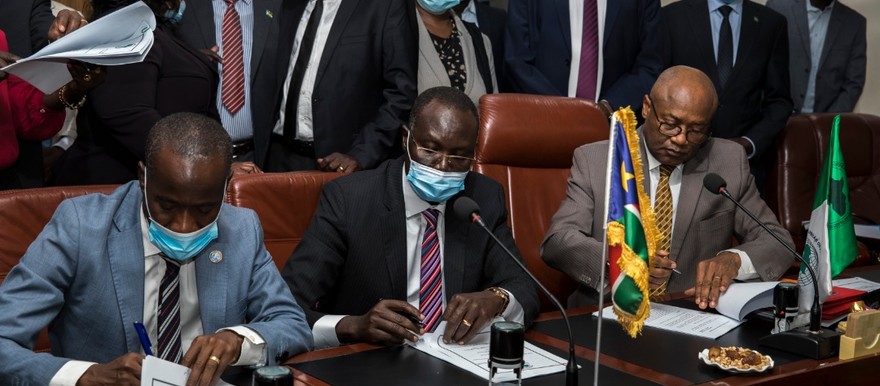The Food and Agriculture Organisation of the United Nations in South Sudan this week received USD 14 million from the African Development Bank (AfDB) to enhance agricultural productivity and boosting the marketing and trade of agricultural products in South Sudan.
The grant is to finance the Agricultural Markets, Value Addition and Trade Development (AMVAT) project to be implemented by the Food and Agriculture Organization of the United Nations (FAO) in close liaison with the Ministry of Agriculture and Food Security.
According to FAO, the five-year AMVAT project will help increase the productivity and incomes of almost 20,000 farming families in Central and Eastern Equatoria and Jonglei states, most of whom are formerly internally displaced persons now returned to their homes in need of economic reintegration.
Speaking at the signing ceremony in Juba this week, Athian Ding Athian, South Sudanese Minister of Finance and Planning said, “A diversified economy away from oil and long-term growth depends on promoting agribusiness development. With the support from our partners, we are building an improved marketing and trade environment for agribusinesses, increasing people’s incomes and creating new jobs, particularly for the youth.”
AfDB Country Manager for South Sudan, Benedict Kanu noted that “with South Sudan being land-locked and experiencing weak urban and peri-urban infrastructure, having good access to lucrative markets especially within the country is a necessary condition for farmers to be profitable, productive and reduce risk of loss of surplus farm produce.”
He added that inefficient marketing infrastructure explains the country’s low level of agricultural value addition preventing farmers and processors from realizing the full value of their produce.
“Thanks to this generous contribution from the African Development Bank, farmers will move faster from subsistence to commercial agriculture by having access to new technologies, markets, and linkages with other services and actors,” said Meshack Malo, FAO Representative in South Sudan. “We are working hand-in-hand with the government to allow farmers and returnees to play a central role in rebuilding the agricultural sector as a market-led economy for South Sudan.”
FAO says the project will create business opportunities for farmers and traders, including women and youth, and provide them with new skills and knowledge, and the agro-processing equipment they need to produce competitive products.




